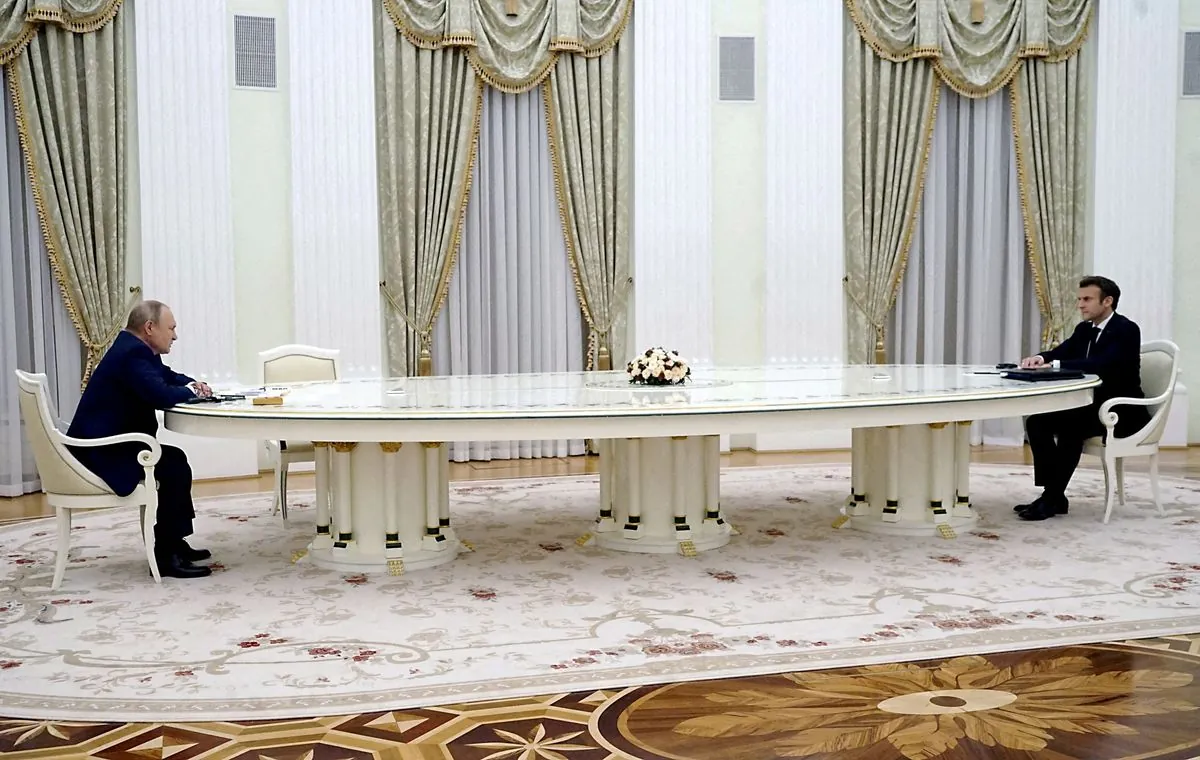In an unprecedented political scenario for modern France, Emmanuel Macron is engaging in crucial discussions with key political figures to establish a new government. This move comes in the wake of recent legislative elections that failed to produce a clear majority in the National Assembly, France's lower house of parliament.
The French political landscape has been thrown into disarray following the July 2024 elections, where no single party secured a majority in the 577-seat National Assembly. This situation is particularly unusual in the French Fifth Republic, established in 1958, which typically favors strong presidential leadership.
The leftist coalition, New Popular Front, emerged as the largest bloc, capturing approximately one-third of the seats. Macron's centrist alliance secured the second position, while the far-right National Rally claimed the third spot. This fragmented result has created a hung parliament, a rarity in French politics where coalition governments are uncommon.
In response to this political impasse, Macron has scheduled meetings with leaders of France's main political parties on August 23 and 26, 2024, at the Elysée Palace. The president's office stated that these consultations aim to "keep moving towards the broadest and most stable majority possible."
The New Popular Front, leveraging its position as the largest group, has put forward Lucie Castets, a relatively unknown civil servant, as their choice for prime minister. However, Macron appears to be exploring other options, potentially seeking a coalition that could unite politicians from the center-left to the traditional right.
"The issue is not a name provided by a political group."
Several names have been circulating in French media as potential candidates for the prime minister role. These include Bernard Cazeneuve, a center-left politician who served as France's interior minister during the 2015 terror attacks, Xavier Bertrand, a former minister considered moderate within the French right, and Michel Barnier, a conservative politician known for his role as the EU's chief Brexit negotiator.
The French Constitution grants the president sole authority in appointing the prime minister. However, the chosen candidate must have the confidence of the National Assembly to effectively govern. This constitutional arrangement, part of France's semi-presidential system, adds complexity to the current situation.
Macron's decision will be crucial in determining the stability of the new government. The president is seeking to avoid a scenario where the government could be quickly overthrown by a no-confidence vote in parliament. This concern is particularly relevant as politicians from the center, right, and far-right have suggested they might attempt to bring down any government that includes members from the France Unbowed party, a component of the New Popular Front.
While there is no strict timeline for naming a new prime minister, the urgency of the situation is clear. In the interim, Macron has kept the outgoing centrist government in a caretaker role to manage current affairs, including overseeing the recently concluded Olympics that ended on August 11, 2024.
As France navigates this uncharted political territory, the outcome of Macron's consultations will be closely watched. The formation of a new government will not only shape domestic policy but also influence France's role on the international stage, particularly within the European Union.
